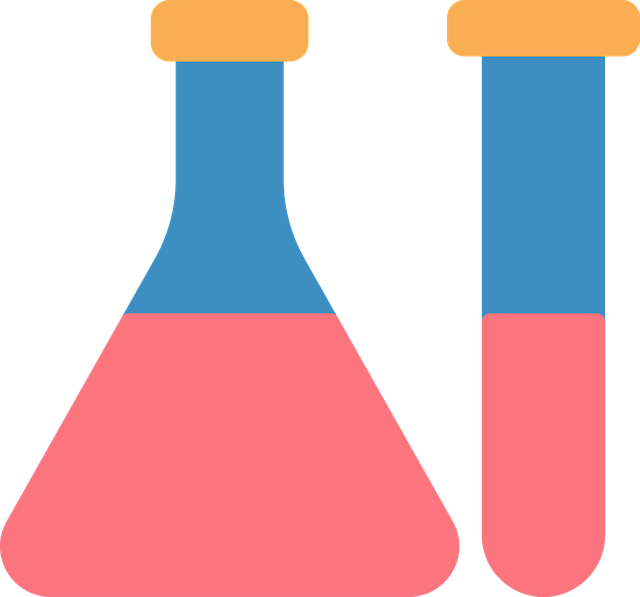Cholesterol management is crucial for heart health, especially for UK men at higher risk. The UK Male Hormone Blood Test assesses total cholesterol, LDL ('bad' cholesterol), and HDL ('good' cholesterol) levels to identify dyslipidemia early. Optimal cholesterol levels below 5.0 mg/dL are ideal; regular testing is recommended for men aged 40+ due to elevated heart disease risks. High HDL (above 60 mg/dL) and low triglycerides (below 150 mg/dL) reduce cardiovascular threats, guiding personalized dietary, lifestyle, or medical adjustments through the UK Male Hormone Blood Test.
Cholesterol is a waxy substance found in your blood, essential for various bodily functions. However, high cholesterol levels can lead to health issues like heart disease. This article guides you through understanding cholesterol basics and why monitoring it matters. We delve into the role of UK Male Hormone Blood Tests as a simple, effective method to measure cholesterol. By interpreting test results, individuals can make informed decisions about their cardiovascular health. Discover how this routine checkup can be a game-changer in managing your well-being.
- Understanding Cholesterol: The Basics and Why It Matters
- How UK Male Hormone Blood Tests Help Monitor Cholesterol
- Interpreting Results: What Do Your Cholesterol Levels Mean?
Understanding Cholesterol: The Basics and Why It Matters
Cholesterol is a waxy substance found in all cells of our bodies, playing a crucial role in maintaining good health. It helps with the production of hormones, vitamin D, and substances that digest food. However, having too much low-density lipoprotein (LDL) cholesterol, often referred to as ‘bad’ cholesterol, can lead to a buildup in the arteries, increasing the risk of heart disease and stroke. This is where regular UK male hormone blood tests become essential.
For men, managing cholesterol levels is particularly important due to elevated risks of cardiovascular issues. A simple blood test can measure total cholesterol, LDL, high-density lipoprotein (HDL) often called ‘good’ cholesterol, and triglycerides. By understanding these numbers, individuals can take proactive steps to maintain healthy cholesterol levels, such as adopting a balanced diet, engaging in regular exercise, and considering medical interventions if necessary.
How UK Male Hormone Blood Tests Help Monitor Cholesterol
In the UK, monitoring cholesterol levels is a crucial aspect of maintaining heart health, and one effective tool in this process is the UK Male Hormone Blood Test. This test offers a simple and accessible way to gain valuable insights into an individual’s cardiovascular health. By analysing blood samples, healthcare professionals can measure total cholesterol, low-density lipoprotein (LDL) cholesterol, known as ‘bad’ cholesterol, and high-density lipoprotein (HDL) cholesterol, often referred to as ‘good’ cholesterol. This comprehensive assessment helps identify potential risks associated with elevated LDL levels and highlights the benefits of maintaining optimal HDL levels.
The UK Male Hormone Blood Test is particularly relevant for men, as it can detect early signs of dyslipidemia, a condition marked by abnormal lipid levels in the blood. Regular screening through this test enables proactive management of cholesterol, which is essential in preventing cardiovascular diseases. Additionally, it provides valuable data for healthcare providers to tailor dietary and lifestyle recommendations or consider medication if necessary, ensuring men take control of their heart health.
Interpreting Results: What Do Your Cholesterol Levels Mean?
Cholesterol results are usually given as milligrammes per decilitre (mg/dL). The optimal level is below 5.0 mg/dL, indicating low risk for heart disease. A reading between 5.0–6.4 mg/dL is considered borderline high, and anything above 6.5 mg/dL warrants attention from a healthcare professional. In the UK, men aged 40 and over are advised to have a regular male hormone blood test that includes cholesterol checks due to elevated risks of heart conditions.
High-density lipoprotein (HDL) cholesterol, often referred to as ‘good’ cholesterol, helps remove LDL (‘bad’) cholesterol from your bloodstream. A healthy HDL level is typically above 60 mg/dL for men. Low HDL levels can increase the risk of cardiovascular problems. In contrast, triglyceride levels, another type of fat in your blood, should be below 150 mg/dL. Higher triglycerides are associated with a higher risk of heart disease. Understanding these numbers is key to making informed decisions about lifestyle changes or medical interventions.
Regularly monitoring cholesterol levels through a UK Male Hormone Blood Test is an essential step towards maintaining good heart health. Understanding your results allows you to make informed decisions about your lifestyle and diet, thereby reducing the risk of cardiovascular diseases. This simple yet powerful tool provides valuable insights into your overall well-being, empowering you to take control of your health.
